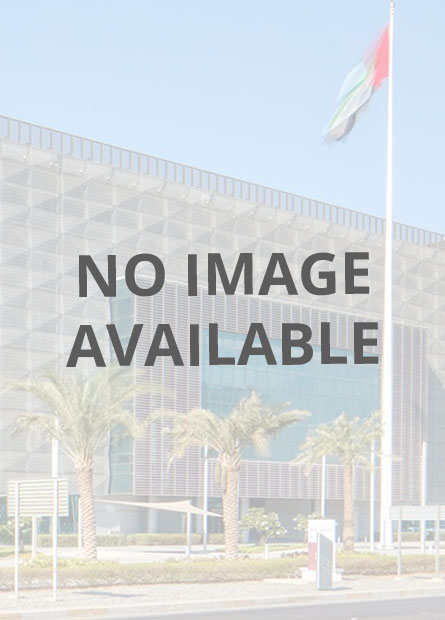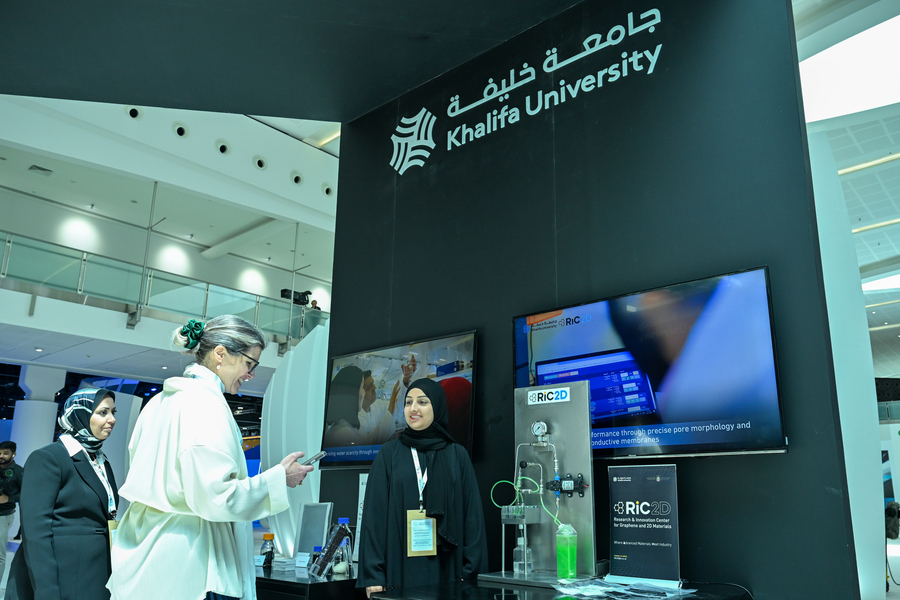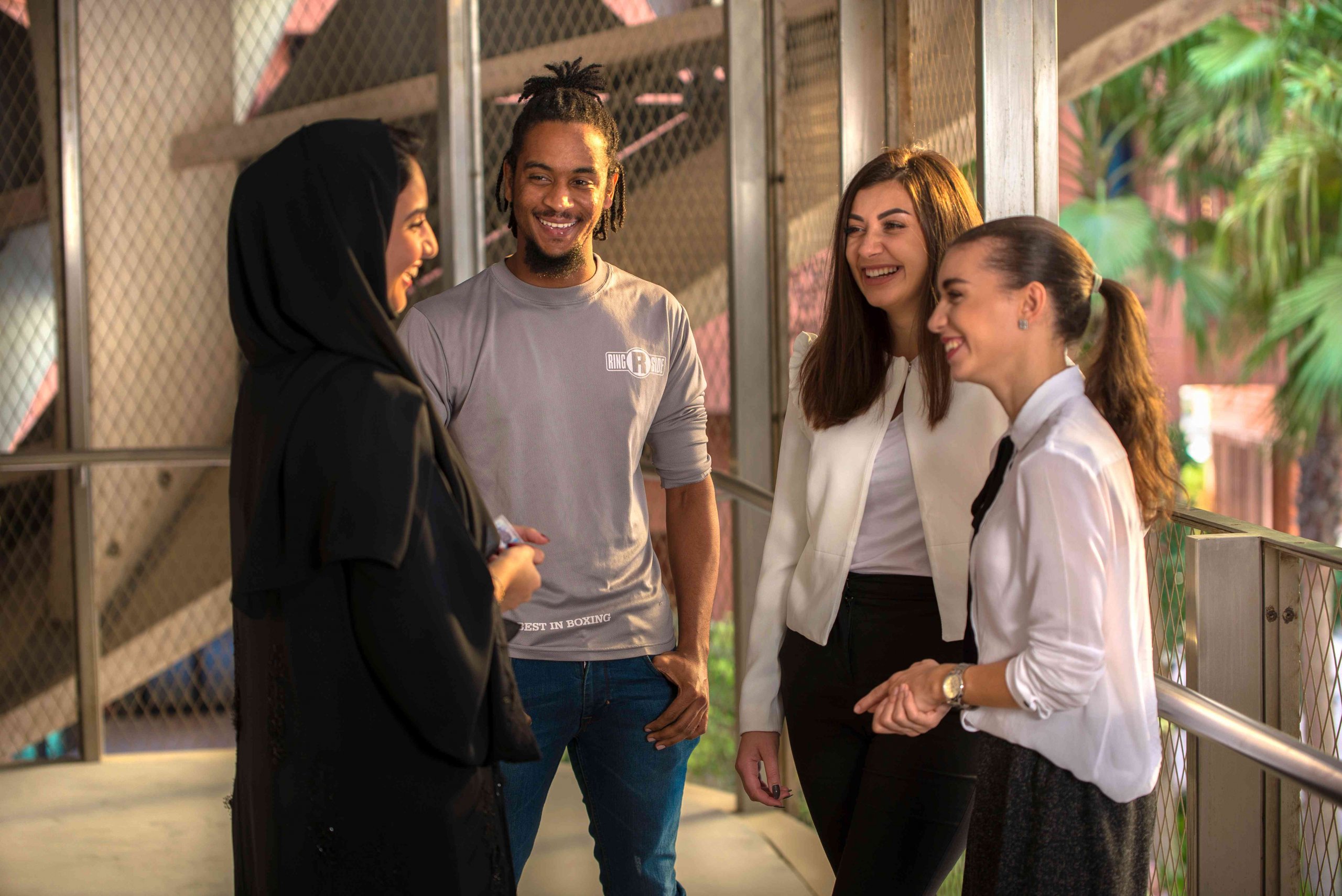Papers on Abu Dhabi’s Energy Scenario Generate Interest at Conference that Coincides with World Renewable Energy Congress 2013 in Fes
Abu Dhabi-UAE: 01 July 2013 – Masdar Institute of Science and Technology, an independent, research-driven graduate-level university focused on advanced energy and sustainable technologies, today announced three UAE national students who recently graduated have presented scientific papers at the Mediterranean Green Energy Forum (MGEF) 2013 in Morocco.
The three Emirati students – Sara Al Shkeili, Materials Science and Engineering program, Mona Al Ali, Engineering Systems and Management program, and Mohamed Al Hosani, Chemical Engineering program – presented their papers at the forum that was held in the Middle East and North Africa (MENA) region for the first time.
Hosted by the Universite Sidi Mohamed Ben Abdellah, Fes, Morocco, the Mediterranean Green Energy Forum 2013 (MGEF) was held from 16 – 20 June. The major international conference was jointly organized by KES International, the World Renewable Energy Network, and Laboratoire des Sciences de l’Information et des systèmes (LSIS), Marseilles, France. This year’s event was a combination of the annual KES Sustainability in Energy and Buildings conference and a regional meeting of the World Renewable Energy Congress.
Dr. Mahieddine Emziane, Associate Professor, Materials Science and Engineering program, said: “The acceptance of the papers by the high-level international conference indicates the extent of innovative and productive technology features analyzed by the students. This international platform in Fes provided a strong impetus to such relevant region-specific innovations. All the papers submitted to this conference go through a rigorous peer-review process and, if accepted, are published by the Elsevier’s international journal Energy Procedia.”
The three scientific papers additionally reflect Masdar Institute’s contribution to Abu Dhabi’s human capital development efforts. Of the three UAE national students, Mohamed Al Hosani’s paper titled ‘Modeling and Simulation of a Thermophotovoltaic System with NaF Heat Storage’ focused on the design of a solar thermophotovoltaic (STPV) system with heat storage to achieve continuous power generation without using expensive batteries.
Al Hosani said: “Due to its geographic location, Abu Dhabi receives very high solar irradiance during the year – between 600 W/m2 and 950 W/m2. These high values which can be used as a heat source in STPV make solar power systems suitable for this part of the world, especially for tackling the main challenge – Abu Dhabi’s peak solar irradiance and the peak electricity demand.”
Sara Alshkeili’s paper on the ‘Design of Si/Ge Dual Junction Solar Cell Devices’, investigates the Si and Ge solar cells in a dual junction tandem solar cell structure, to broaden the collection of photons form the incident solar spectrum. The new structure was evaluated and simulated under different conditions to investigate its suitability in thermophotovoltaic (TPV) and concentrated photovoltaic (CPV) applications besides its main intended photovoltaic (PV) application.
Alshkeili said: “Since Abu Dhabi is aiming for 7% energy form sustainable sources by 2020, it would be reasonable to consider dual junction tandem solar cells as a main contributor because their efficiency exceeds that of conventional single junction Si solar cells technology. From a business point of view, higher efficiency of the solar cell devices means higher energy output with the same amount of bulk semiconducting materials.”
Mona Abdulla Al Ali’s paper on ‘Performance analysis of rooftop PV systems in Abu Dhabi’ evaluates the suitability of PV systems for installations in different types of buildings in Abu Dhabi and the UAE.
Al Ali said: “This is the first paper that represents the results of my Master’s thesis. It presents the results obtained from simulated performance monitoring of seven different roof-mounted PV systems in Abu Dhabi. In my thesis, technical and economic assessments were carried out for rooftop PV systems with different sizes that use different solar cell technologies. Also, policy frameworks already put in place were examined and some recommendations were proposed for large-scale deployment of PV systems in the UAE’s built environment.”
Papers presented at the Sustainability in Energy and Buildings 2013 conference covered areas including technology for renewable energy and sustainability in the built environment; optimization and modeling techniques; information and communication technology usage; as well as behavior and practice, including applications.
Serving as a key pillar of innovation and human capital, Masdar Institute remains fundamental to Masdar’s core objectives of developing Abu Dhabi’s knowledge economy and finding solutions to humanity’s toughest challenges such as climate change.






